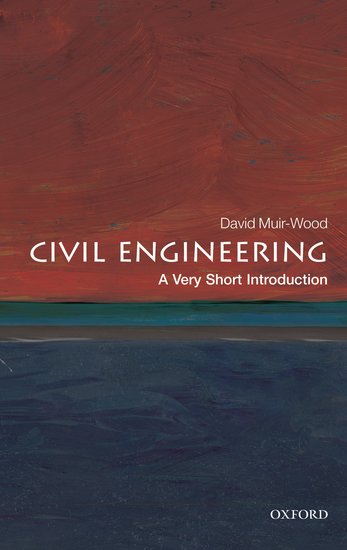Home >
A Very Short Introduction >
Robotics (Science)
A Very Short Introduction | Science
Robotics
ISBN: 9780199578634
Series: A Very Short Introduction
Robotics (Science)
A Very Short Introduction Robotics (Science) Media > Books > Non-Fiction > Education Books Expect Delays of Up to 4 Weeks| Order Below |
ISBN
9780199578634 (10-digit ISBN: 019957863X)
- Description
- Key Features
- Series Description
- Table of Contents
- Explores one of the key technologies of the modern world and its impact
- Considers the use of robots in a variety of contexts - including the established manufacturing and warehouse automation to new uses in homes and hospitals
- Introduces robots as an imitation of life by looking at the parts that make a robot - to build a conceptual picture of what a robot is, how it works, and how 'intelligent' it is
- Examines the successes of robotics in planetary exploration
- Looks to the future of robotic research and practical uses
Robotics is a key technology in the modern world. Robots are a well-established part of manufacturing and warehouse automation, assembling cars or washing machines, and, for example, moving goods to and from storage racks for Internet mail order. More recently robots have taken their first steps into homes and hospitals, and seen spectacular success in planetary exploration. Yet, despite these successes, robots have failed to live up to the predictions of the 1950s and 60s, when it was widely thought - by scientists and engineers as well as the public - that by turn of the 21st century we would have intelligent robots as butlers, companions, or co-workers.
This Very Short Introduction explains how it is that robotics can be both a success story and a disappointment, how robots can be both ordinary and remarkable, and looks at their important developments in science and their applications to everyday life.
Oxford's Very Short Introductions series offers concise and original introductions to a wide range of subjects--from Islam to Sociology, Politics to Classics, Literary Theory to History, and Archaeology to the Bible.
Not simply a textbook of definitions, each volume in this series provides trenchant and provocative--yet always balanced and complete--discussions of the central issues in a given discipline or field. Every Very Short Introduction gives a readable evolution of the subject in question, demonstrating how the subject has developed and how it has influenced society. Eventually, the series will encompass every major academic discipline, offering all students an accessible and abundant reference library.
Whatever the area of study that one deems important or appealing, whatever the topic that fascinates the general reader, the Very Short Introductions series has a handy and affordable guide that will likely prove indispensable.
Please note: As this series is not ELT material, these titles are not subject to discount.
1: Where are the intelligent robots?
2: Working robots: what robots do now
3: Biological robotics
4: Becoming human: humanoid and android robots
5: Trends in robotics research: new approaches
6: Robotic futures
Further reading
Robotics is a key technology in the modern world. Robots are a well-established part of manufacturing and warehouse automation, assembling cars or washing machines, and, for example, moving goods to and from storage racks for Internet mail order. More recently robots have taken their first steps into homes and hospitals, and seen spectacular success in planetary exploration. Yet, despite these successes, robots have failed to live up to the predictions of the 1950s and 60s, when it was widely thought - by scientists and engineers as well as the public - that by turn of the 21st century we would have intelligent robots as butlers, companions, or co-workers.
This Very Short Introduction explains how it is that robotics can be both a success story and a disappointment, how robots can be both ordinary and remarkable, and looks at their important developments in science and their applications to everyday life.
Key Features
- Explores one of the key technologies of the modern world and its impact
- Considers the use of robots in a variety of contexts - including the established manufacturing and warehouse automation to new uses in homes and hospitals
- Introduces robots as an imitation of life by looking at the parts that make a robot - to build a conceptual picture of what a robot is, how it works, and how 'intelligent' it is
- Examines the successes of robotics in planetary exploration
- Looks to the future of robotic research and practical uses
Series Description
Oxford's Very Short Introductions series offers concise and original introductions to a wide range of subjects--from Islam to Sociology, Politics to Classics, Literary Theory to History, and Archaeology to the Bible.
Not simply a textbook of definitions, each volume in this series provides trenchant and provocative--yet always balanced and complete--discussions of the central issues in a given discipline or field. Every Very Short Introduction gives a readable evolution of the subject in question, demonstrating how the subject has developed and how it has influenced society. Eventually, the series will encompass every major academic discipline, offering all students an accessible and abundant reference library.
Whatever the area of study that one deems important or appealing, whatever the topic that fascinates the general reader, the Very Short Introductions series has a handy and affordable guide that will likely prove indispensable.
Please note: As this series is not ELT material, these titles are not subject to discount.
EASY ORDER FORM
PRICES LISTED INCLUDE CONSUMPTION TAX
Price Before Tax:
¥1,790


